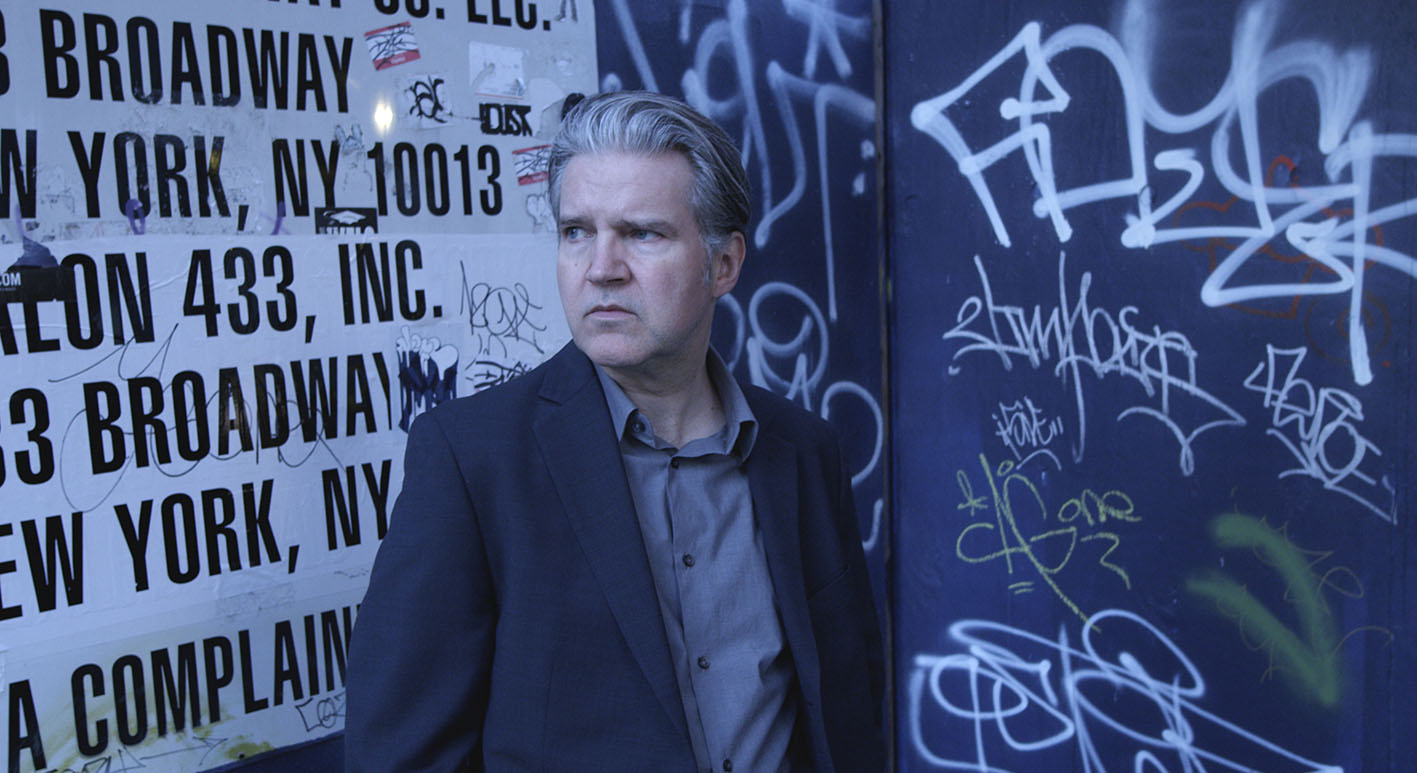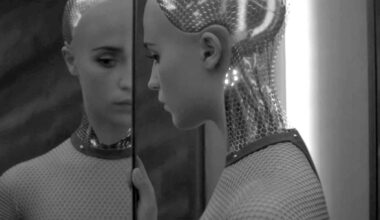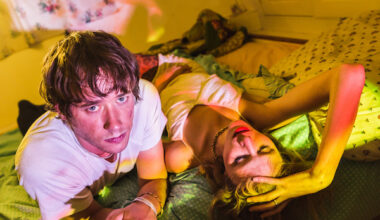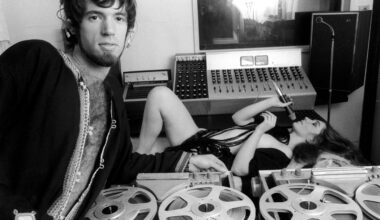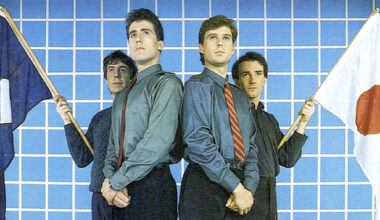If you still think of Lloyd Cole as a jangly popster, you’re in need of some re-education. His latest album, ‘1D’, follows on from his 2013 collaboration with krautrock pioneer Roedelius and finds him walking a fine line all the way to the future
What happens when successful pop stars withdraw from the spotlight? Do we expect to find them years later patiently sitting in the same little genre box we discovered them in, obediently doling out their hits to a devoted fan base? Despite being a huge admirer of his 80s and 90s work, I rather lost track of Lloyd Cole around the turn of the millennium, so I was more than a little surprised to hear of his recent adventures.
Lloyd Cole shot to fame in 1984 with The Commotions, his Glasgow-based, Rickenbacker-toting band, and their debut album ‘Rattlesnakes’, enjoying a rash of jangly pop hits during the decade. After going solo in 1990, he maintained a reasonable profile, slipping comfortably into the role of acoustic songwriter elder statesman.
Yet Cole’s latest album, ‘1D’ – subtitled ‘Electronics 2012-2014’ – has none of his trademark lyrical flair. There’s not a single literary or pop culture reference (no sign of Norman Mailer, Eva Marie Saint or even Sean Penn). Nor is there any evidence of his distinctive vocal style, since ‘1D’ marks a bold departure into challenging territory of generative music, a style that owes far less to Bob Dylan and Lou Reed than it does to Faust, Tangerine Dream and, crucially, one Hans-Joachim Roedelius of Cluster and Harmonia fame.
This is not the first time that Cole has dipped his toe in these burbly waters. His electronic voyages date back to his 2001 ambient album ‘Plastic Wood’ and he collaborated with Roedelius on their ‘Selected Studies Volume One’ long-player in 2013. But fans of Cole’s earlier work might be surprised to learn that his love of the more experimental end of the musical spectrum pre-dates his own recording career by a decade or so. He traces it back to his passion for 1973’s ‘(No Pussyfooting)’ album, made with two reel-to-reel tape machines plus Brian Eno and Robert Fripp. It wasn’t until the 1990s that any sign of Cole’s penchant for electronics began to emerge in his own music, though.
“I think it all started in 1993 with ‘Bad Vibes’, where I attempted to bridge my song-based material with more electronic music and weld it into one cohesive thing,” he explains. “It failed dismally and I decided to pursue the two strands as distinct projects. I went back to recording traditional songs for the next album but I still had a room full of synths, so I started to make some instrumental sketches and was careful not to think of them as potential songs, which was how I’d always worked before.”
Does the way he thinks about a piece of music inevitably affect its eventual form, then?
“Well, these things don’t even need to be songs or compositions, they can just be constructions,” he says. “And with generative music, who even composes this stuff anyway? I simply put the pieces in place and it outputs.”
Lloyd Cole found his way into electronics almost by accident. His first forays came via early stabs at film compositions, which he describes as “living somewhere between Brian Eno and John Barry”.
“Frustratingly, most of these film projects didn’t turn into paying jobs,” he says. “The competition’s so intense that nobody gets paid and I ended up with a bunch of material that I didn’t have any use for. So I decided to make a CD as a calling card to send out to music supervisors who might want to commission me.”
The The’s Matt Johnson, who was working in the studio next door, and record producer Chris Hughes (aka Merrick of Adam & The Ants fame) helped advise Cole on what to do with his new sound reel.
“Pretty much everyone I played it to said, ‘Well, it sounds like an album, you should just put it out’,” he continues. “And so that became ‘Plastic Wood’. A lot of it was made in real time, using an Oberheim Echoplex and recorded direct to DAT. I think that was when I first realised I enjoyed making this type of repetitive music.”
‘Plastic Wood’ caught the ear of Roedelius, who was sent the album by a mutual friend and liked it so much he promptly made his own overdubbed version of it, asking if Cole wanted to release it. The pair agreed to work on a fresh project instead, but it took another decade for ‘Selective Studies’ to come together.
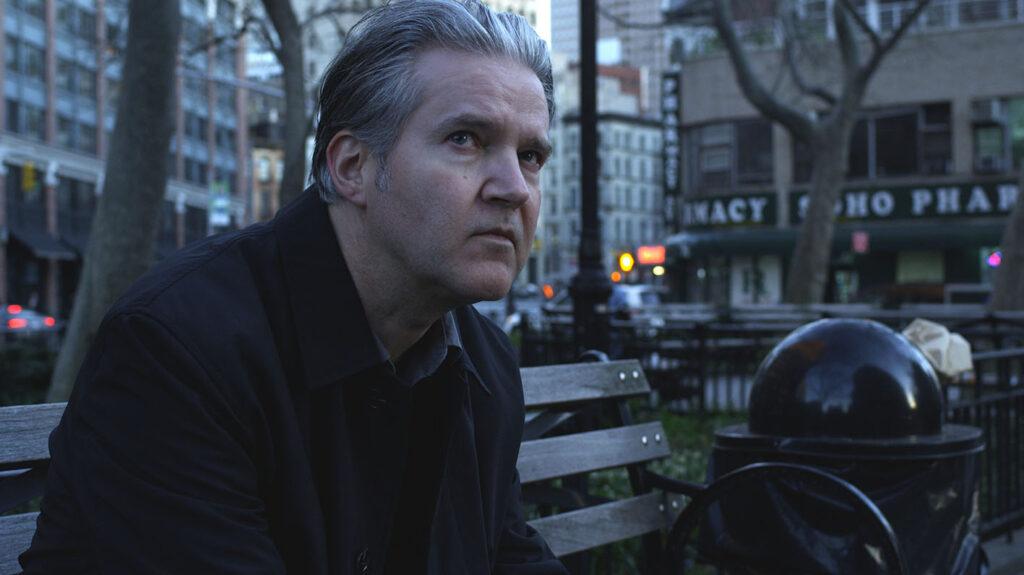
I can’t help thinking that the world of knobs, patches and intimidatingly vast banks of control panels must have initially seemed entirely alien to Cole. Wasn’t he worried that he needed a degree in electronic engineering to get to grips with the analogue universe?
“Actually, I think you can make this music without really knowing what you’re doing at all,” he offers. “A lot of people take the approach of, ‘I’m just going to plug this into here and see what happens’. I started to assemble a modular synth for ‘Selected Studies’, which was as much about learning as it was composition. At least 75 per cent of the pieces came not from scenarios where I sat down with the intention of recording something, but when I was just playing around with things. I’d be reading about something in [modular synth guru] Allen Strange’s book and just try it out.”
How different is the modular process from writing traditional rock songs?
“To me, it’s very similar,” says Cole. “I write songs using tiny fragments based on things I hear or read and then I think, ‘That could become the spark for something beautiful’. I believe there’s something in Eno’s idea of making everyone change instruments on [David Bowie’s] ‘Boys Keep Swinging’. The best stuff you create is when you’re out of your element.
“I have no formal musical training, I can’t always recognise a chord and sometimes I can’t even tell if it’s a major or minor, and I think that’s what appeals to me about modular. You don’t have a keyboard, so you can’t even tell what key you’re playing, and that can be a lovely way to work. You often don’t know the exact chords you’re playing, you just know what sounds right. I find the idea of music as a showcase for virtuosity is rather bad taste anyway. Once you’ve honed your chops, the skill lies in learning to underplay things.”
Cole was attracted to the modular route partly as a way of escaping the ubiquitous drudgery of working with computers. And strangely, despite the potentially perplexing mass of wires, oscillators and filters, he sees this as a parallel to retreating into nature and spending time in a remote cabin in the woods with an acoustic guitar.
“I think the reason I like working in modular is it keeps things pretty simple,” he says. “I can see my modulation patches, I can see everything that I’m doing because it’s there on the matrix. I’m comfortable working this way and, frankly, I don’t want to go back to any other type of synthesis.”
One measure of how enmeshed Cole has become with the analogue world is the matter-of-fact way he sometimes gets technical, talking at length about the role of binary logic in programming modules to create polyrhythms. He doesn’t take much encouragement to start tackling thorny topics such as the difficulties of tuning oscillators.
‘1D’ wouldn’t have happened were it not for Gunther at Bureau B Records nudging Lloyd Cole about the unused pieces he had left over from the ‘Selected Studies Volume One’ album. The recording process for ‘Selected Studies Volume One’ was surprisingly simple, with Cole and Roedelius sending each other around 15 segments of music. They each completed six pieces and only one track had any further back and forth. Cole has spoken of the album’s recording process as “a type of circuit” and the way he refers to the collaborative process is equally cold and functional.
“With ‘Selected Studies’, nobody except Roedelius and I knows who did what,” offers Cole. “But with ‘1D’, there’s nowhere to hide because it’s just me.”
When it comes to modular collaborations, Cole’s work with Roedelius is clearly only the beginning. So is the modular community, with its enthusiast sites like the intriguingly-named Muff Wiggler, a hotbed for this sort of meeting of minds? Is there an inherent openness to “modding culture” that you won’t find in traditional rock circles?
“There is a whole subculture that’s very interesting,” says Cole. “But what I think is really exciting is that people are constantly coming up with new ideas for modules and new ways of making music. I’m working with an old friend to build my own module and there’s open source software which enables you to write codes to fine tune your modules and get the precise features you need.”
Now that he’s fully got to grips with the modular way, can he see himself marrying electronics with his lyrical songwriting?
“It’s not out of the question,” he replies. “I have been thinking that, 22 years after ‘Bad Vibes’, I might have another go at trying to bring the two together, but I haven’t committed to doing anything concrete yet. There’s an entire folder of pieces from these sessions that are ripe for some form of collaboration, so I’m hoping for the next record to take those and maybe work with five or six people, different voices working to one unified aesthetic, which would be mine.
“I feel I really have to be constantly learning with modular stuff. The minute I sit down and consciously try to ‘make some music’, well, I really don’t like that feeling. I also tend to think, ‘Who needs another piece of music by me anyway?’, so it’s got to be something new. It’s the same with painters in a way. You don’t expect them to show you everything in their sketchbook, but they’ll keep on painting regardless.”
Whether it’s an abstract expression or a new spin on Lloyd Cole’s classics of old, I reckon we’re poised for more masterworks in the future.
‘1D’ is out on Bureau B
